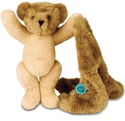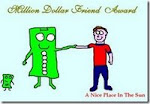
Eating a well balanced diet with an emphasis on calcium provides you with a solid base for healthy bones.
Vitamin D, known as the sunshine vitamin (as your body produces it when exposed to the sun) helps your body absorb calcium.
Milk is the best dietary source for helping bones as it is not only rich in calcium, but is fortified with Vitamin D.
Most North Americans do not meet their Vitamin D requirements through milk, margarine and exposure to sunlight.
In Canada, for at least half of the year exposure to sunlight is inadequate to supply the daily Vitamin D requirement.
Overuse of sunscreen and spending more time indoors compounds the problem.
Our ability to metabolize nutrients, or absorb the good things from food, declines with age, and as a result, increases our risk of osteoporosis.
This is why it is essential for elderly people to make every effort to maintain adequate amounts of Vitamin D and calcium in their diets.
So, be sure to consult your doctor or dietitian if you believe you are not getting enough sun exposure or are unsure of your Vitamin D and/or calcium intakes.
The recommended daily allowance of Vitamin D for adults is 400 international units (IU) and 800 IU for people over 50.
Studies in nursing homes have shown that the overall hip fracture rate dropped by 50 per cent when all residents were given supplements of 1000 mg of calcium and 1000 IU of Vitamin D.
Dairy products are the most calcium-rich foods available, and also contain many other nutrients essential to your health.
While calcium is found in other foods, it is difficult to meet your daily calcium requirements through these sources alone.
Plant foods are a less concentrated source of calcium than dairy products, and our bodies generally absorb only 30-50 per cent of the calcium contained in our diet.
Cooked broccoli, Brussels sprouts, kale and rutabaga are your best vegetable choices.
Compare your calcium sources and remember that all sources are not created equal.
So choose wisely, and remember, you need to eat an awful lot of broccoli (12 spears) to get the same amount of calcium as in just 1 cup of milk or yogurt.
If you have any doubts about the amount of calcium in your diet, consult your doctor or dietitian.



































5 comments:
I keep my calcium-citrate right here on my desk! Great message, and so important for us all!
Although I do not drink cows milk, I do get my dairy in other ways.
Nice message. Do you have a "Got Milk" t shirt?
I saw one for me:
"Got Magnet"?
When I lived in England I always took calcium and vitamin D tablets, but for the last three years we have lived in France. I make all of our bread and change water for skimmed milk. I also try to remember to have a cereal in the winter. Debs x
P.S. Here Via MOB
I love bears, and I love milk. This is the perfect combination. Did you find a bear like this, or did you doctor him up? Pretty darned cute!
Great article. Check out http://headtotoe.apta.org/topic/special/uh2625/sec1.htm to see if you are at risk for osteoporosis. Well, see ya. I'd better hightail it to the kitchen and take my pills.
Post a Comment